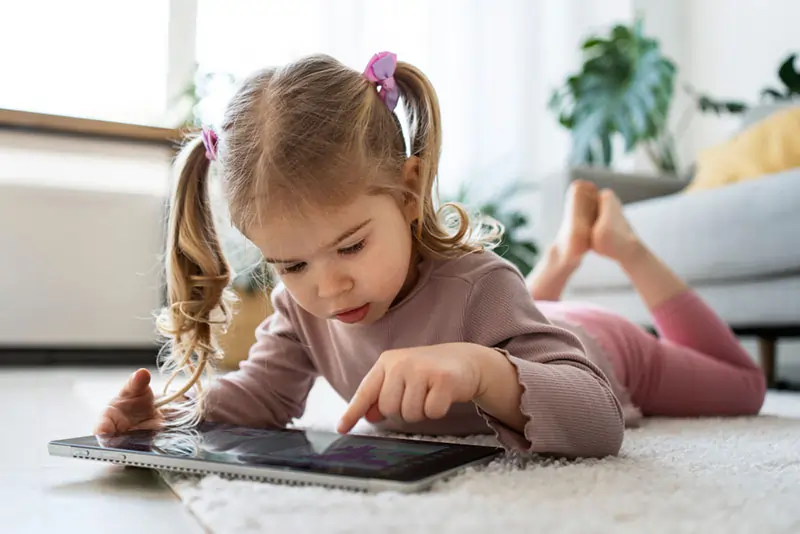Touchscreens and Toddlers

It is fair to say that the digital age has transformed all aspects of life. This is especially true when it comes to the early years, including education and how we teach young children. While technology has shown promise in enhancing learning experiences, it’s crucial to navigate its incorporation thoughtfully, especially in early years settings. Touchscreen devices such as tablets and smartphones are now commonplace in households and educational settings alike. The question we must address is how these tools affect the cognitive and social development of toddlers and preschoolers.
The Appeal of Touchscreens
Touchscreen devices are intuitive, easy to use, and can capture a child’s attention instantly. Unlike traditional computers, which require the coordination of a mouse and keyboard, touchscreens enable direct interaction. This is particularly beneficial for children in the early years nursery school, as their fine motor skills are still developing. Educational apps designed for young children often employ vibrant colours, engaging animations, and interactive tasks that can foster learning in a fun environment.
Cognitive Benefits
Touchscreens offer a range of cognitive benefits for toddlers. Firstly, they promote hand-eye coordination, an essential skill for a range of activities, from drawing to playing sports. They can also aid in the development of spatial reasoning, as many educational apps involve puzzles and shape matching. Additionally, apps that focus on numeracy and literacy skills can offer a head start on foundational academic knowledge.
Potential Drawbacks
Despite the apparent advantages, there are concerns about the impact of screen time on young children. Excessive use of touchscreens can lead to reduced physical activity, which is vital for a child’s physical development and overall well-being. It could also contribute to social isolation if the child becomes too engrossed in the device, neglecting peer interaction and real-world play.
Guidelines for Responsible Use
Given the potential drawbacks, it’s advisable to establish guidelines for touchscreen use in early years settings:
Time Restrictions
Limiting screen time is crucial. The UK Department of Health and Social Care advises that children aged 2 to 5 should have no more than one hour of screen time per day, not including time spent on video calls with family and friends.
Curated Content
Choose educational apps that align with the curriculum and foster cognitive and social development. The software should be interactive, age-appropriate, and devoid of advertisements that might distract the child.
Adult Supervision
Active engagement from adults, whether teachers or parents, can amplify the learning benefits. Adults can help contextualise what the child is seeing and help them apply it to the real world.
Balanced Activity
Ensure that touchscreen activities are balanced with physical play, outdoor activities, and social interaction with peers. A well-rounded activity schedule contributes to holistic development.
Use – Don’t Abuse!
Touchscreens can be a valuable tool in early years education, offering an interactive platform that captivates young minds. However, like any educational tool, they are not without their shortcomings. By adopting a balanced approach that combines digital learning with traditional methods, we can harness the potential of technology while mitigating its drawbacks. Time restrictions, curated content, adult supervision, and a balanced activity schedule are key factors in navigating the use of touchscreens in early years settings responsibly.


